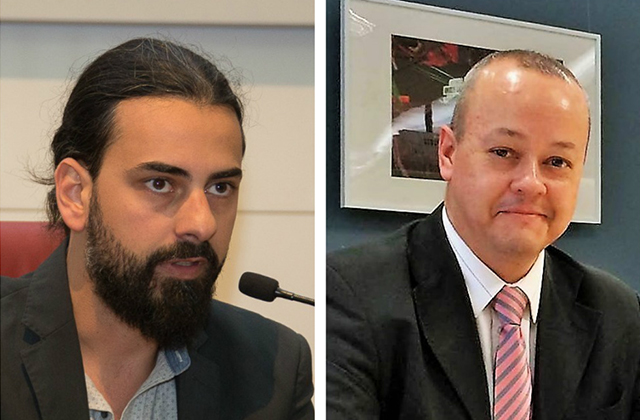The G-word game in Brazil

In November 1944, Raphael Lemkin – Polish lawyer of Jewish origin – published a book in which the word “genocide” appeared for the very first time. A neologism composed of the Greek prefix genos (race or tribe) and the Latin suffix cidium (to kill). Finally, the “crime without a name”, as Winston Churchill had referred to the Nazi extermination policy, had been named.
For Lemkin, its creation would only be successful if it were used in the verdicts of those indicted by the International Nuremberg Military Tribunal (INMT) or during the other 12 judgments of the Nuremberg Military Tribunal (NMT). Thus, in October 1945, the term “genocide” was used for the first time in an international legal context but did not figure in the list of crimes. The Nuremberg defendants were convicted of crimes against humanity, crimes against peace and war crimes.
On December 9, 1948, the General Assembly of the newly created United Nations approved the Convention on the Prevention and Punishment of the Crime of Genocide, in which genocide is defined, in its Article 2, as “any of the following acts committed with intent to destroy, in whole or in part, a national, ethnical, racial or religious group”. There, genocide ceased to be just a word and became a concept, a criminal type of international law, subject to judgment and punishment, “the crime of crimes”, until then without a legal definition when committed against the namas, hereros, armenians, european jews, among others during the twentieth century.
Although, since the approval of the mentioned UN genocide convention in 1948, which text resulted from postwar political contingences, some problems were verified related to its effectiveness, like what the excluded possibility for political extermination to be considered genocide (the case of Cambodia, for example). Some experts used to write that the 1948 Convention looked to the past, but not to the future.
This context can be related to another difficult situation when analyzing the actions of South American governments in relation to their original peoples (indigenous nations). In today’s Brazil, under a populist extreme far-right government, the indigenous people’s rights have been under constant violations and disrespect. With a 210 million population, the original nations are 0.4% of the aforementioned population, with 305 distinct nations (the largest number of indigenous nations in the Americas), 274 different languages and around 890.000 individuals (self-recognized as indigenous), the indigenous people have inhabited the Americas for at least ten thousand years, to quote the most conservative statistics; but some research results by French-Brazilian archeologist Niède Guidon point out that Homo Sapiens has already inhabited the region of the current Brazilian state of Piauí (northeast of the country) for at least one hundred thousand years. When the Portuguese arrived at the Brazilian coast, in 1500, the indigenous nations were around 5 million.
The fundamental basis for the existence of the Brazilian indigenous peoples can be identified with the preservation of their traditional indigenous lands. The relation between these nations and their traditional lands is not based on exploitation, but on integration; the social structure of the first peoples is the eminently communal; moreover, they find in their lands the necessary spiritual connection with their cosmologies and the projection of their ancient cultures.
Due to this context, invasion of indigenous lands; transmission of epidemies by the non-indigenous persons; murders of indigenous leaders by miners, land invaders and farmers; major infrastructure works (such as hydroelectric plants that destroy the way of life of those ancestral peoples); legislative, administrative and judicial actions that prevent the adequate provision of health services, as well as the promotion of effective public policies to combat Covid-19, besides the increasing of the deforestation of the forests, like the Amazon region, are real threats to physical and cultural survival of these human groups.
The question that arises is: can the invasion and the despoil of traditional indigenous lands be considered genocide/ethnocide or crime against humanity? Such actions have as a consequence the suppression of the fundamental basis for their physical existence and for the projection of their cultures as a result from political decisions with the goal of creating conditions for the economic exploitation of said lands by private individuals (such as mining companies), as well as omissions in relation to the invasion of indigenous lands by gold miners (about twenty thousand invading gold miners currently occupy parts of the lands indigenous Yanomamis in the Brazilian Amazon, for example).
If considered the criminal and legal meaning of the term genocide, like approved at the International Convention for the Prevention and Repression of the Crime of Genocide (1948), as well as at the Statute of Rome (1998), there must be proved the mens rea, that means, the intent to destroy the targeted human group. Without this mental element, there is no genocide under the criminal and legal definition. This element, usually hard to prove, is an obstacle when a government submits indigenous groups to administrative, legislative and judicial conditions that produce their physical, cultural and economic extermination.
Conceptualizing a process as “genocide” generates an expectation of memory and action, indicating the need for intervention, justice and reparation. Of course, no person, organization or state wants to be charged of genocide. In addition to the criminal penalties provided for, it is painful for any citizen to recognize that their nation was built on the extermination of peoples who lived there. However, it is even more painful for those people who realize that the death, imprisonment or deportation of their ancestors were not isolated events of violence or simple misfortune, but part of a systematic plan to deny existence in a social body that considers them unwanted. Thus, victims and descendants of mass violence rush to denounce the genocide of their groups, while perpetrators and authorities rush to deny it, refusing to accept the applicability of the “word that starts with G”, as they did several American politicians over the years to avoid characterizing massacres around the world as “genocide” and, as a result, being forced to act.
A new debate is under way in Brazil and also abroad: is there a genocide in Brazil against its indigenous nations, especially if considered the disastrous posture of the Brazilian President in relation to Covid-19. Some may argue that, in fact, there is no genocide under the law since there is no intention to kill; or that genocide cannot be used as a synonym for wholesale deaths. Others may say that those who claim that there is a genocide in progress are politicizing the debate, trying to put on the Brazilian Federal Government and the Armed Forces another pejorative label. Although it is an interesting debate, stopping it now is useless in containing the deaths by Covid-19, which affect the original peoples more brutally. Survey of the Articulation of Indigenous Peoples in Brazil points out that the mortality rate for Sars-CoV-2 among indigenous people is 1,479 per 100 thousand people, while in the Brazilian population in general it is 907 per 100 thousand. The Articulation counts 15,848 indigenous people infected in the country so far, with evident underreporting. The situation is so dramatic that the Brazilian Supreme Court demanded that the government take measures to curb the contamination of native peoples, as well as the Inter-American Commission on Human Rights.
The Brazilian government should endeavor to be part of the solution and not of the problem and could revisit their own past and recognize that Brazil’s native populations were victims of genocide between 1964-85, documented in the Figueiredo Report produced in 1967 by the regime itself and also in the Brazilian National Truth Commission Report (2014). Those who survived that extermination process – which even involved the use of biological weapons – and their descendants now resist a passive, but no less violent, genocidal policy. At the current rate of indigenous lethality, soon the military authorities in key posts in the current Brazilian government may also have to bear the responsibility of a process of genocide for intentionally subjecting Brazilian first peoples to the condition of existence capable of causing physical destruction, total or partial, as expressed in national and international law.
Flávio de Leão Bastos Pereira Mackenzie Presbyterian University Professor of Human Rights and Constitutional Law PhD. in Economics and Political Law Member of the Roster of Experts of the International Nuremberg Principles Academy Member of the International Network of Genocide Scholars (INoGS) Expert in Genocide and Human Rights – International Institute for Genocide and Human Rights Studies (Zoryan Institute – University of Toronto, Canada)

























